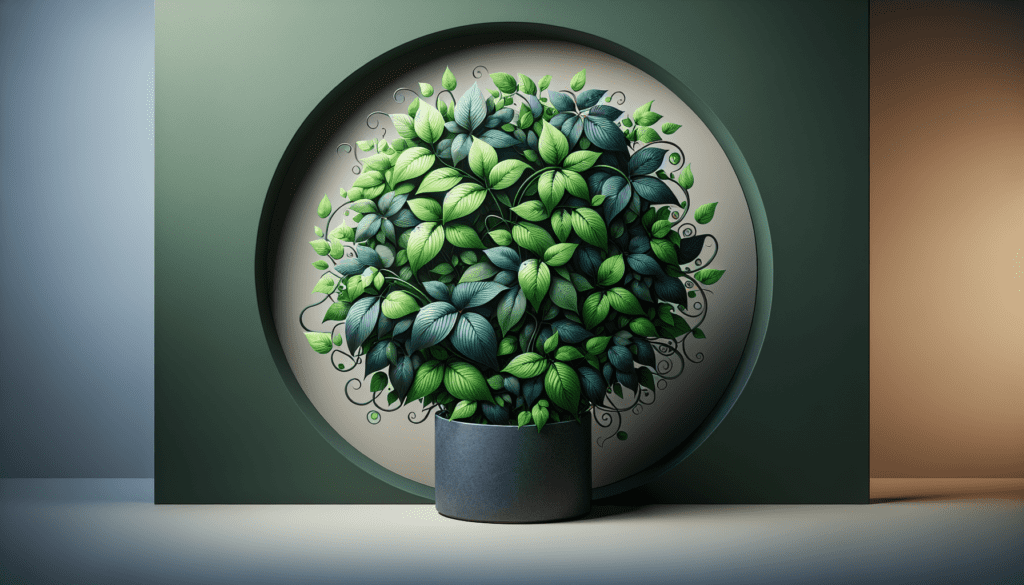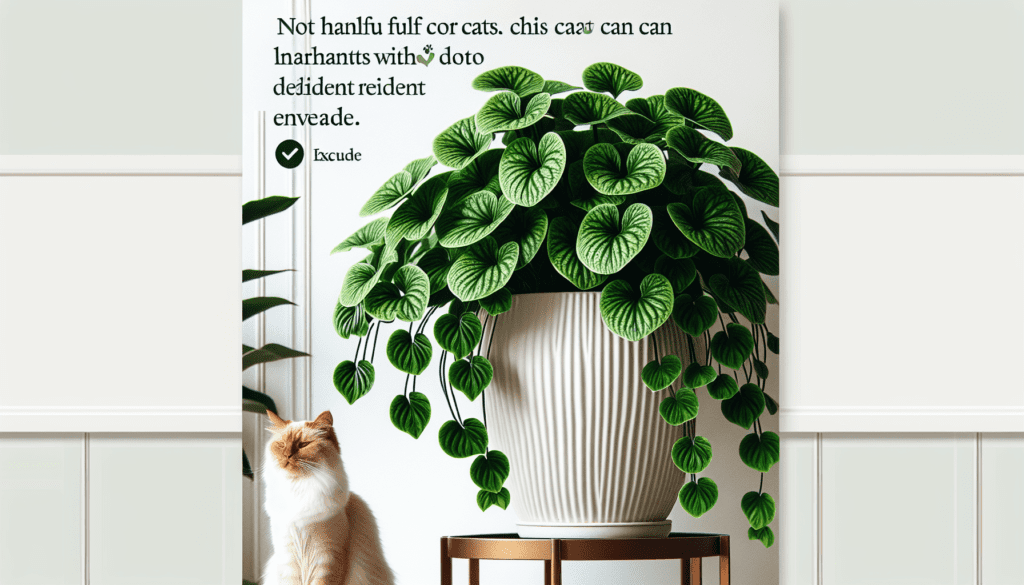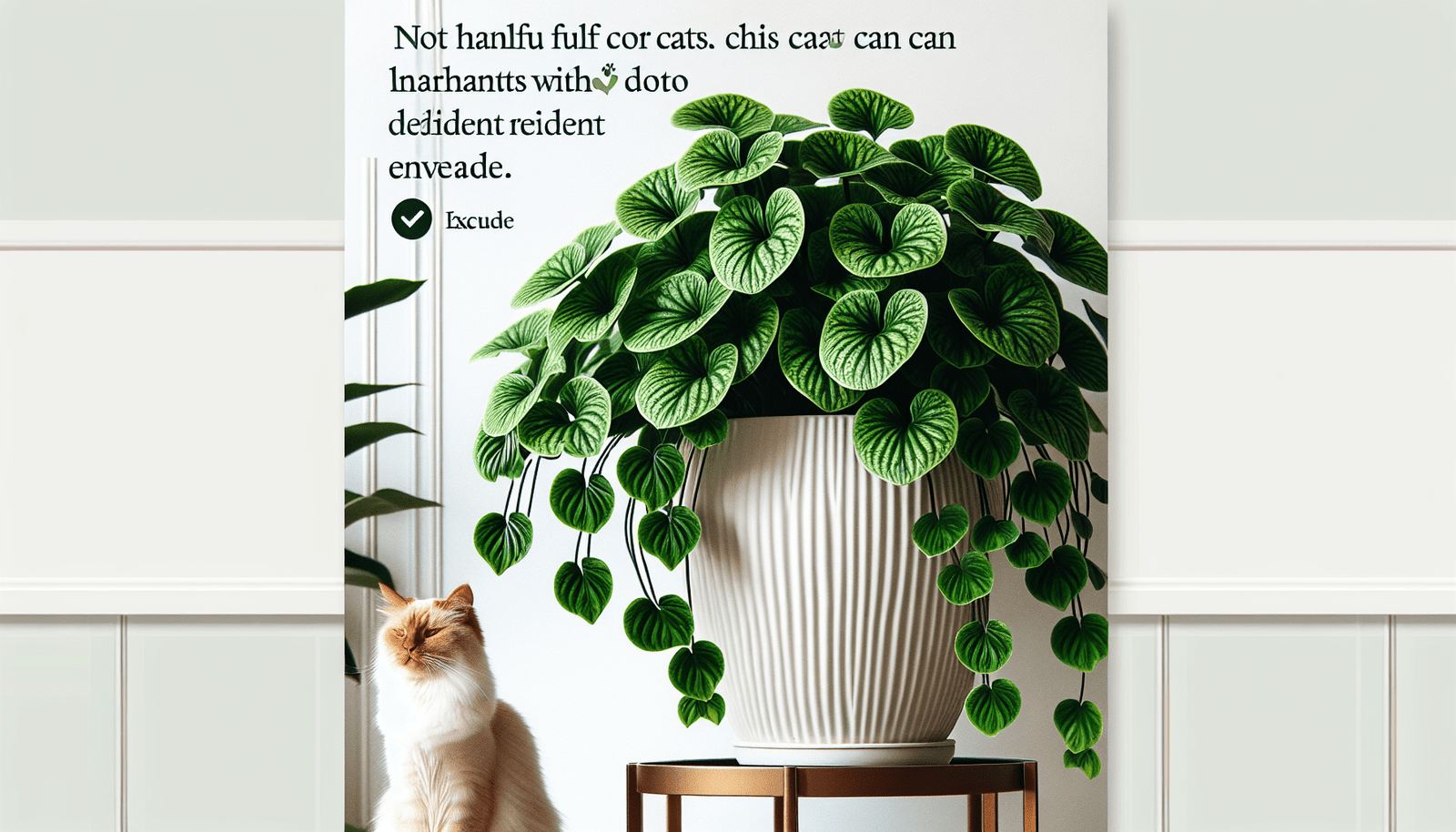Are you a proud cat owner who is constantly worried about your feline friend nibbling on your houseplants? If so, you’re in luck! This article aims to provide you with a comprehensive list of the best cat-proof plants for your home. By incorporating these plants into your living space, you can create a safe environment for both your curious cat and your beloved greenery. Say goodbye to shredded leaves and toxic plants, and say hello to a harmonious coexistence between your furry friend and your indoor garden.
Non-Toxic Plants
Spider Plant
Spider plants, also known as Chlorophytum comosum, are a popular choice for cat owners because they are non-toxic to cats. These beautiful plants are known for their long, arching leaves and hanging clusters of small white flowers. Spider plants are not only safe for your furry friends but also have air-purifying properties, helping to remove harmful toxins from the air.
Boston Fern
Another non-toxic plant option is the Boston Fern, scientifically known as Nephrolepis exaltata. This lush and vibrant fern has delicate, feathery fronds that add a touch of elegance to any room. Boston Ferns are not only safe for cats but also improve indoor air quality by increasing humidity and removing harmful pollutants.
Areca Palm
If you’re looking to add a touch of tropical paradise to your home, the Areca Palm, or Dypsis lutescens, is an excellent choice. This palm variety has graceful, arching fronds that create a beautiful focal point in any room. Areca Palms are safe for cats and can help improve air quality by removing toxins such as formaldehyde, xylene, and toluene from the air.
Plants with Soft Leaves
Ponytail Palm
The Ponytail Palm, or Beaucarnea recurvata, is a striking plant with its unique, swollen trunk and long, cascading leaves. This plant is safe for cats and adds a touch of whimsy to any space. Its soft, slender leaves are perfect for curious cats to rub against without causing any harm.
Prayer Plant
With its intricate, colorful patterns and vining foliage, the Prayer Plant, or Maranta leuconeura, is a popular choice among plant enthusiasts. Not only is this plant non-toxic to cats, but it also thrives in low-light conditions, making it ideal for indoor spaces. The Prayer Plant’s soft, broad leaves make it a safe and beautiful addition to any cat-friendly home.
Zebra Haworthia
Zebra Haworthia, or Haworthia fasciata, is a small succulent that features striking zebra-like white bands on its dark green, triangular leaves. This plant is safe for cats and requires minimal care, making it perfect for busy cat owners. The Zebra Haworthia’s soft, fleshy leaves are not only safe for curious cats but also add a unique touch to your indoor plant collection.

Plants with High Places
Cat Grass
Cat Grass, or Dactylis glomerata, is a type of grass that is safe and beneficial for cats. Cats often enjoy nibbling on grass, which aids in digestion and can help prevent hairballs. Providing a designated area of cat grass gives your feline friend a safe and accessible place to indulge their natural instincts.
Catnip
Catnip, a member of the mint family scientifically known as Nepeta cataria, is a must-have for cat owners. This incredible plant produces a strong aroma that can stimulate excitement and playfulness in cats. While catnip is safe for cats, it’s important to note that not all cats are affected by its effects.
Cat Palm
If you’re looking to create vertical interest in your space and provide your cat with a high perch to observe their surroundings, the Cat Palm, or Chamaedorea cataractarum, is an excellent choice. This palm variety features delicate, feathery fronds and is safe for cats. The Cat Palm’s height allows your feline companion to satisfy their natural curiosity while enjoying a cozy spot by the window.
Plants with Deterrent Scents
Lemon Balm
Lemon Balm, or Melissa officinalis, is a fragrant herb that not only repels mosquitoes but also deters cats from digging in your garden or indoor plant pots. The strong lemon scent produced by Lemon Balm is pleasant to humans but disliked by cats. Placing Lemon Balm plants strategically around your home can help keep your plants safe and your feline friend away from them.
Rosemary
Rosemary, or Rosmarinus officinalis, is a versatile herb loved by many for its aromatic fragrance and culinary uses. However, cats tend to dislike the strong scent of rosemary. By incorporating rosemary plants into your indoor or outdoor cat-friendly spaces, you can add a touch of greenery while keeping your plants safe from curious paws.
Lavender
Lavender, scientifically known as Lavandula angustifolia, is a beautiful plant cherished for its vibrant purple flowers and calming scent. While lavender is a favorite among humans, cats tend to be repelled by its strong aroma. Adding lavender plants to your home not only enhances its aesthetic appeal but also helps protect your other plants from cats’ curious nibbling.

Hanging Plants
Spider Plant
Spider plants are not only non-toxic and safe for cats but also excellent choices for hanging plants. Their long, arching leaves make them perfect for suspending in baskets or from macramé hangers. These trailing plants add a touch of elegance to any room while providing a safe and engaging environment for your feline friend to explore.
Boston Fern
The lush foliage of Boston Ferns makes them a popular choice for hanging plants. Their delicate fronds cascading down from a hanging basket create a stunning visual display. Boston Ferns are not only safe for cats but also thrive in the high humidity often found in bathrooms or other moist areas of your home.
String of Pearls
String of Pearls, or Senecio rowleyanus, is a unique succulent vine characterized by its round, bead-like leaves. This trailing plant provides an interesting texture to any hanging display. String of Pearls is safe for cats and requires minimal maintenance, making it an excellent choice for both cat owners and plant lovers.
Plants with Spiky Leaves
Snake Plant
Snake plants, also known as Sansevieria, are popular for their striking spiky leaves and air-purifying properties. These plants are safe for cats and come in various shapes and sizes. Snake plants thrive in low-light conditions, making them perfect for indoor spaces, and their spiky leaves deter cats from chewing or playing with them.
Aloe Vera
Aloe Vera is a succulent plant known for its healing properties and gel-filled leaves. This plant is safe for cats and can add a touch of green to any room. The spiky nature of Aloe Vera leaves makes it an unappealing option for cats to chew or scratch, while providing you with the added benefit of having a natural remedy on hand for minor cuts or burns.
Cactus
Cacti come in an array of shapes and sizes, making them a versatile option for cat-proof plants with spiky leaves. While cats may be tempted to inspect cacti up close due to their intriguing appearance, the sharp spines quickly deter any further exploration. Popular cactus varieties such as the Bunny Ear Cactus or Golden Barrel Cactus are safe for cats and add a touch of desert beauty to your home.
Plants in Closed Terrariums
Air Plants
Air plants, or Tillandsia, are fascinating plants that don’t require soil and can thrive in closed terrariums. These unique plants absorb moisture and nutrients from the air, making them excellent options for cat owners. With various sizes and shapes available, air plants can create visually stunning terrariums while keeping your plants safe from curious paws.
Moss Terrarium
Moss terrariums are self-contained ecosystems that provide a lush and verdant display. Moss varieties such as Sheet Moss, Cushion Moss, or Spanish Moss can be used to create visually appealing and cat-safe terrariums. These low-maintenance plants thrive in moisture-rich environments and can add a touch of natural beauty to any room.
Bromeliads
Bromeliads are tropical plants known for their vibrant, exotic flowers and unique rosette-shaped foliage. These plants can thrive in closed terrariums and are safe for cats. Bromeliads come in a wide range of colors and sizes, creating a visually striking display that adds a touch of the tropics to your indoor space.
Plants with Unappetizing Taste
Coleus
Coleus, or Plectranthus scutellarioides, is a colorful and versatile plant known for its vibrant foliage. The leaves of Coleus plants come in a variety of patterns and colors, making them an eye-catching addition to any room. While safe for cats, the slightly bitter taste of Coleus leaves deters most felines from nibbling on them.
Citronella
Citronella, scientifically known as Cymbopogon, is a popular plant often used to repel mosquitoes due to its strong lemon scent. The citrusy aroma of citronella plants is unappetizing to cats, making them an excellent choice for cat-friendly gardens or outdoor spaces. This plant not only keeps mosquitoes away but also adds a refreshing fragrance to your garden.
Marigolds
Marigolds, or Tagetes, are well-known for their vibrant yellow and orange flowers, making them a favorite among gardeners. These beautiful plants are safe for cats and can be grown indoors or outdoors. Marigolds have a slightly bitter taste that is unappealing to cats, making them a natural deterrent to keep your furry friends away from your plants.
Plants in Hanging Baskets
Boston Fern
As mentioned earlier, Boston Ferns are not only safe for cats but also thrive in hanging baskets. The cascading fronds of Boston Ferns create a stunning visual display when suspended from a basket or hanger. These plants not only add a touch of elegance to your home but also provide a safe and engaging environment for your cat to explore.
Spider Plant
Spider plants are not only suitable for hanging due to their trailing leaves but also safe for cats. Hanging spider plants in baskets or macramé hangers adds a unique and visually appealing dimension to your space. The long, arching leaves are perfect for curious cats to interact with, allowing them to engage in natural behaviors without harming themselves or your precious plants.
English Ivy
English Ivy, or Hedera helix, is a versatile plant that can be grown both indoors and outdoors. With its trailing and cascading foliage, English Ivy is an excellent choice for hanging baskets. This plant is safe for cats and adds a touch of timeless beauty to any space. English Ivy is also known for its air-purifying properties, making it a beneficial addition to your home.
Plants with Hidden Soil
Bromeliads
In addition to being suitable for closed terrariums, bromeliads are also great choices for plants with hidden soil. These unique plants have a central cup or tank where they store water and nutrients. This eliminates the need for traditional soil and creates a visually striking display. Bromeliads are safe for cats and can thrive in a variety of indoor environments.
Orchids
Orchids are elegant and exotic plants known for their stunning flowers and unique root systems. These plants often grow in specialized potting mixes or bark instead of traditional soil. Orchids are safe for cats and add a touch of sophistication to any space. With their hidden soil, orchids create a visually appealing display that is sure to impress.
Air Plants
As mentioned earlier, air plants don’t require traditional soil to thrive. These unique plants absorb moisture and nutrients from the air, making them perfect for creating displays with hidden soil. Air plants can be attached to various materials such as driftwood, shells, or decorative rocks, making them visually striking additions to any room. Their soil-free nature also ensures your cats won’t be tempted to dig or play in the pots.
In conclusion, creating a cat-friendly environment doesn’t mean sacrificing your love for plants. With a variety of non-toxic, soft-leaved, high-placed, deterrent-scented, hanging, spiky-leaved, closed terrarium-friendly, unappetizing taste, hidden soil, and hanging basket plants to choose from, you can find the perfect balance between a lush indoor oasis and a safe space for your furry friend. By incorporating these cat-proof plants into your home, you can enjoy the beauty and benefits of having indoor greenery without compromising your cat’s well-being. Remember to always research the specific care requirements and potential hazards of each plant before bringing them into your home. Happy planting!

